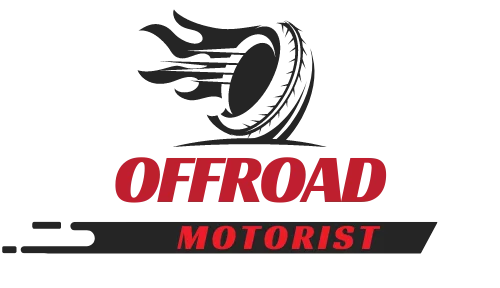are wheel bearings covered under ford warranty
It’s an important question to ask when buying a car: are wheel bearings covered under Ford warranty? People who purchase cars want to know that their investment is protected, and it can be reassuring to have the assurance of a manufacturer’s warranty. But what does that really mean? In this article, we’ll take a closer look at what is covered under Ford’s warranty and how you can make sure your wheel bearings are taken care of.
Yes, wheel bearings are typically covered under Ford’s warranty. The specifics depend on the type of vehicle you own and the type of coverage you have purchased. Generally speaking, most parts related to the drivetrain and suspension system are covered by Ford’s bumper-to-bumper warranty for 3 years or 36,000 miles.
If you’re considering purchasing a new or used car from Ford, it’s important to understand what your protection covers. Read on for more information about wheel bearing coverage under Ford
Key Takeaways
- Ford offers a warranty on all wheel bearings that covers parts and labor for 3 years or 36,000 miles.
- Ford recommends regular maintenance, such as wheel bearing lubrication, to ensure the warranty is valid.
- Wheel bearings should be inspected immediately if any signs of wear or damage are noticed.
- Ford dealerships have the expertise to diagnose and repair wheel bearing problems quickly and effectively under warranty coverage.
What are Wheel Bearings and Are They Covered Under Ford Warranty?
Wheel bearings are the components of a vehicle’s suspension system that allow the wheels to spin freely. They are located between the wheel hub and axle, and provide support for the weight of the vehicle. They also help reduce friction and absorb road shock, which helps improve ride quality.
Wheel bearings are essential to a safe and comfortable ride, so it is important to make sure they are always in good condition. Regular maintenance is necessary to ensure they last as long as possible.
Are wheel bearings covered under Ford warranty? Yes, depending on the type of warranty you have purchased for your vehicle. Most factory warranties include coverage for wheel bearings, but you should check with your dealer or service center to be sure. The warranty may also cover any labor costs associated with replacing or repairing them if needed.
It is important to note that most warranties only cover parts that fail due to a defect in materials or workmanship during normal use of your vehicle, not those that fail due to wear or abuse from driving conditions such as off-roading or racing. Additionally, some warranties may require proof of regular maintenance before covering any repairs related to wheel bearings.
How to Identify If Your Wheel Bearing Is Damaged or Faulty?
If you’ve noticed a grinding noise coming from your vehicle’s wheel, it could be a sign that your wheel bearing is damaged or faulty. Wheel bearings are essential components of the vehicle’s suspension system, and they help ensure that the wheels turn smoothly and without any vibrations. If you suspect that one of your wheel bearings is damaged or faulty, there are several ways to identify the issue.
The first way to determine if your wheel bearing is damaged or faulty is to check for signs of wear and tear. Look for any visible signs of damage, such as rust, cracks in the metal, or worn-down surfaces. You can also check for any loose parts by jiggling the wheel around and listening for rattling noises. If you hear any unusual noises while doing this test, it could be an indication that something is wrong with your wheel bearing.
Another way to identify a damaged or faulty wheel bearing is to inspect its grease seal. A healthy grease seal should be intact and free of cracks or tears. If you notice any signs of damage on the seal, it could mean that dirt and debris have made their way into the bearing housing and caused damage over time.
What Are the Symptoms of a Bad Wheel Bearing?
A bad wheel bearing can cause a wide range of symptoms, ranging from a humming noise coming from the wheel to steering problems. It is important to be aware of these symptoms and take action if they occur.
The most common symptom of a bad wheel bearing is a humming or grinding noise coming from the wheel area when driving. This noise may get louder when accelerating, and may also be accompanied by vibrations in the steering wheel or floorboard. In some cases, this noise may only be heard when cornering or turning at low speeds. If this occurs, it is important to have your vehicle inspected as soon as possible as it could indicate that the bearing has failed and needs to be replaced.
Another symptom of a bad wheel bearing is an increase in vibration in the steering wheel or floorboard when driving at high speeds. This can cause difficulty in controlling the vehicle and should not be ignored. Additionally, if there is an issue with your bearings, you may also experience increased tire wear on one side of your car due to uneven weight distribution caused by the faulty bearing.
Lastly, if you feel any play or looseness in your steering when turning corners or making sharp turns, this could indicate that one or more of your bearings has failed and needs to be replaced immediately for safety reasons.
How Much Does It Cost to Replace a Wheel Bearing Under Ford Warranty?
Replacing a wheel bearing under Ford warranty can be both expensive and time consuming. The exact cost of replacing a wheel bearing will depend on the specific type of Ford vehicle, as well as the labor and parts costs associated with the repair.
The first step in determining how much it will cost to replace a wheel bearing under Ford warranty is to take your vehicle to an authorized Ford dealership. At the dealership, technicians will inspect your vehicle and determine if there is an issue with the wheel bearing. If so, they will provide you with an estimate for the repair cost. This estimate should include both labor and parts costs associated with replacing the wheel bearing.
In addition to labor and parts costs, there may also be additional fees associated with replacing a wheel bearing under Ford warranty. These fees may include diagnostic fees, environmental charges, or other applicable taxes or surcharges. Be sure to ask your technician about any additional fees that may apply before agreeing to any repairs.
Finally, it’s important to note that some Ford models are covered by extended warranties that may cover all or part of the cost of replacing a wheel bearing under Ford warranty. Be sure to check your owner’s manual or contact your local dealership for more information about what types of repairs are covered by your extended warranty plan.
How to Extend the Life of Your Vehicle’s Wheel Bearings?
Wheel bearings are an essential part of your vehicle’s suspension system and play a major role in providing a smooth ride. Proper maintenance and care of your wheel bearings will help to extend the life of your vehicle and ensure that its performance is not compromised. Here are some tips for extending the life of your wheel bearings:
Regularly check tire pressure
It is important to regularly check the pressure in all four tires, as under-inflated tires can cause excessive wear on wheel bearings. Make sure you use the correct tire pressure as recommended by the manufacturer, which should be printed on the sidewall of each tire or in your vehicle’s owner’s manual.
Have regular inspections done
Have a qualified technician inspect your vehicle’s wheel bearing system at least once a year or every 10,000 miles (whichever comes first). This will help to identify any potential problems before they become serious and costly repairs.
Use high-quality lubricants
When it comes time to lubricate your wheel bearings, always use high-quality lubricants specifically designed for this purpose. This will help protect against corrosion and reduce friction between moving parts, thus extending their life span significantly.
Replace worn out parts promptly
If you notice any signs of wear or damage on your wheel bearing components, replace them immediately to prevent further damage and costly repairs down the line.
FAQs
Does Ford offer coverage for wheel bearing replacement?
Yes, Ford offers coverage for wheel bearing replacement under their warranty, depending on the type of vehicle and its age.
What other components are covered by the Ford warranty?
The Ford warranty covers a variety of components including engine parts, electrical components, body and paintwork, interior trim and upholstery, suspension components and brakes.
How long does the Ford warranty last?
The length of the Ford warranty varies depending on the model and year of your vehicle. Generally speaking, most new cars come with a 3-year/36,000-mile bumper-to-bumper limited warranty and a 5-year/60,000-mile powertrain limited warranty.
Are there any exclusions to the coverage provided by the Ford Warranty?
Yes, there are certain exclusions to what is covered by the Ford Warranty such as normal wear and tear items like tires or brake pads as well as damage from abuse or misuse of your vehicle. Additionally, modifications made to your vehicle may void your warranty coverage in some cases.





